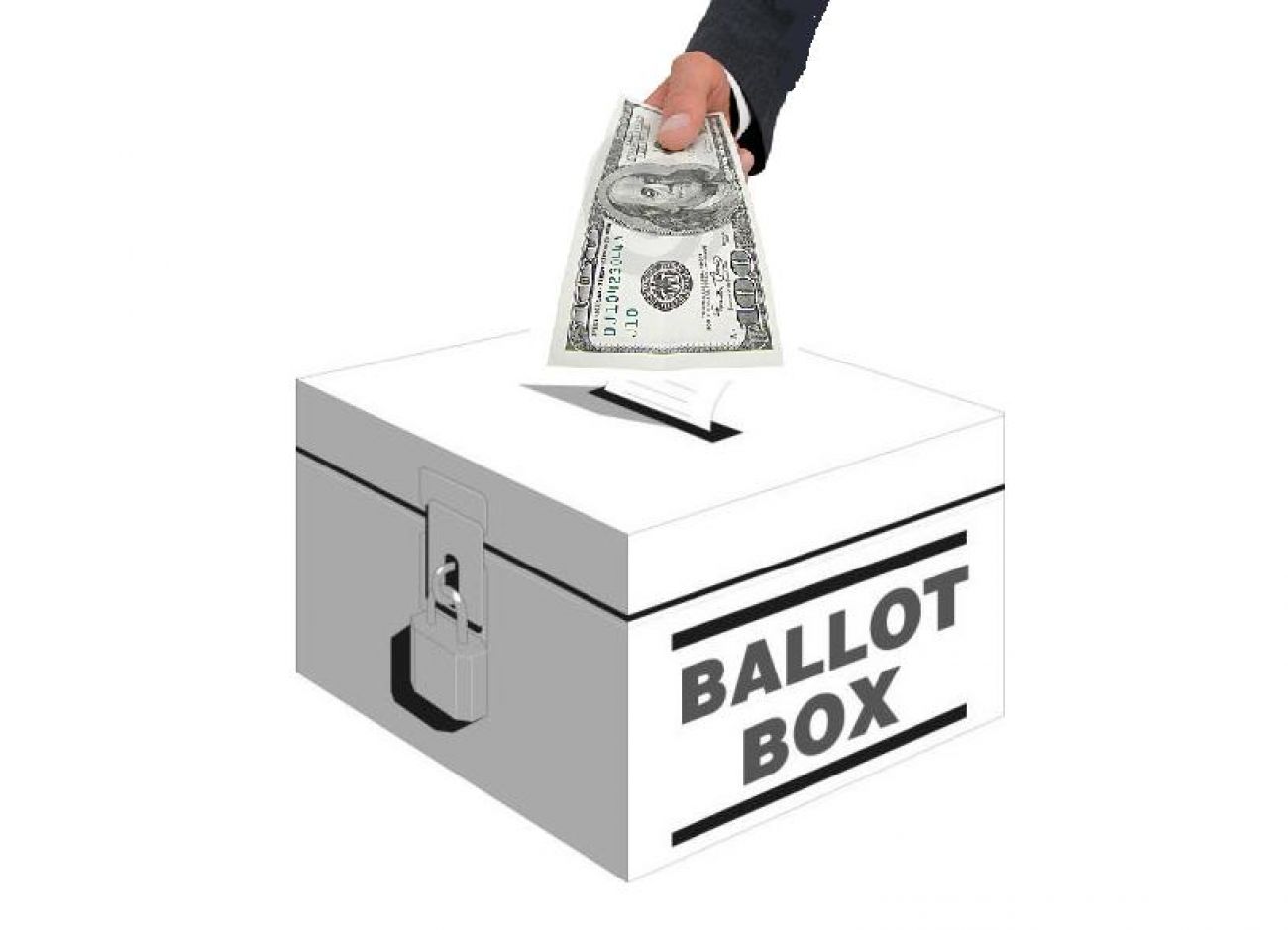A dark-money cloud obscures issues that matter in Michigan

As anybody knows who’s recently tried to watch the evening news, catch the Wolverines or Spartans on a Saturday afternoon, or have dinner uninterrupted by phone solicitations or robocalls…
That’s not easy, because we’ve reached political high season – and the weather is getting steadily worse.
The nonpartisan Michigan Campaign Finance Network reports that, through Labor Day, the campaigns for governor and U.S. Senate had spent a total of nearly $30 million on advertising, mostly TV.
In both cases, much of the spending is “dark money,” money for so-called issue-based advertising, in which the identity of those paying for the ads can legally be unreported and therefore effectively secret. An effort to bring sunshine to the process failed last year when the legislature passed a bill allowing dark money to remain secret and preventing officials from requiring disclosure.
The biggest fraction of these funds is “independent,” that is, it comes from sources not directly connected with either party or any of the Michigan-based political campaigns. In other words, Mr. Out-of-State Billionaire/Ideologue can spends a ton telling Michigan voters who to support and why, regardless of what’s going on in their minds.
Spend that money, that is, without the voters knowing who is giving it or what their motivation may be. As for those actually running – who cares what the candidates think? It’s the ideology lurking behind the big money that really counts.
When I talked with both Michigan Republican and Democratic party chairs about this a few months ago, both railed against out-of-state “poligarchs” whose heavy spending is taking over the content and voice of what used to be locally managed campaigns.
“They have their own strong viewpoints,” one said, “that might or might not fit with what Michigan voters are thinking. But they’ve got the money, and that’s what makes the ads.”
All that connects in my mind with an interesting piece that appeared in the Sept. 5 issue of the Gongwer News Service report. It began, “There is a disconnect between the issues Michigan Republican candidates are emphasizing and the issues that matter to independent voters,” a quote from Greg McNeilly, one of the state’s top Republican consultants and operatives.
McNeilly, according to Gongwer, has looked over three different polls of Michigan voters, all conducted by “right-of-center” organizations. On his website, he listed issues that Republican candidates in Michigan are emphasizing, and said, “based upon the polling data, these are issues NO INDEPENDENT voter cares about: Immigration; Common Core education reform; Keystone Pipeline; repealing ‘Obamacare’; business tax cuts; recoveries, economies or economics.”
In contrast, according to McNeilly, independents do care about: “Jobs; restoring the American dream; equal opportunity in education; affordable, workable health care.”
The Gongwer report continued: “What jumps out about the first list Mr. McNeilly posted is that it virtually mirrors the issues Republican candidates in Michigan are emphasizing. It’s not so much that the themes are bad ones. The problem, he said, is there is “minimal intensity from voters on those issues.”
This, right when this year’s is fast becoming one of the most intense gubernatorial races in state history. One recent poll, by USA Today/Suffolk University and published in the Detroit Free Press, found Democrat Mark Schauer with a slim 2 percent lead over incumbent Gov. Rick Snyder. Important in the context of McNeilly’s comments are cross tabs from the poll showing that Snyder has a small but clear (48-42) lead with independent voters.
Michigan has slightly more voters who lean Democratic than Republican. But those who self-identify as independent has been growing, and these days there are slightly more of them than those who swear allegiance to either of the major political parties.
Interestingly, Snyder’s lead among Independents may contrast with the common wisdom among political experts that it’s the highly partisan, highly motivated voters – the “base” – which really makes the difference in elections. Maybe big-time Republican donors from out of state are taking aim at GOP base voters, even if the issues they push don’t seem to turn on the Independents.
So the next time you see “independent” TV ads advocating for Republican candidates, you might want to check to see if they fit McNeilly’s analysis. And you might ponder which bloc carries more weight: The GOP base or those leaning independent.
Which gets us to the larger issue behind any of these supposed lists. According to Rich Robinson, director of the Michigan Campaign Finance Network, some $85 million of spending in TV ads went unreported between 2000 and 2012 because the ads were purchased by issue advocacy groups. (Millions more in such ads have and will undoubtedly air since.)
Under Michigan law, because such ads don’t explicitly tell voters to “vote for” or “vote against” candidate X, the donors don’t have to be identified. The gap between “issue education” ads and outright political advertising is, of course, a distinction without a difference.
But the legal loophole opened by the U.S. Supreme Court in its 2010 Citizens United decision has opened the floodgates for a gusher of dark money to surge into Michigan.
This is bad mainly because it risks making political discourse in our state the controlled fief of secret, often out-of-state moneybags.
See what new members are saying about why they donated to Bridge Michigan:
- “In order for this information to be accurate and unbiased it must be underwritten by its readers, not by special interests.” - Larry S.
- “Not many other media sources report on the topics Bridge does.” - Susan B.
- “Your journalism is outstanding and rare these days.” - Mark S.
If you want to ensure the future of nonpartisan, nonprofit Michigan journalism, please become a member today. You, too, will be asked why you donated and maybe we'll feature your quote next time!

